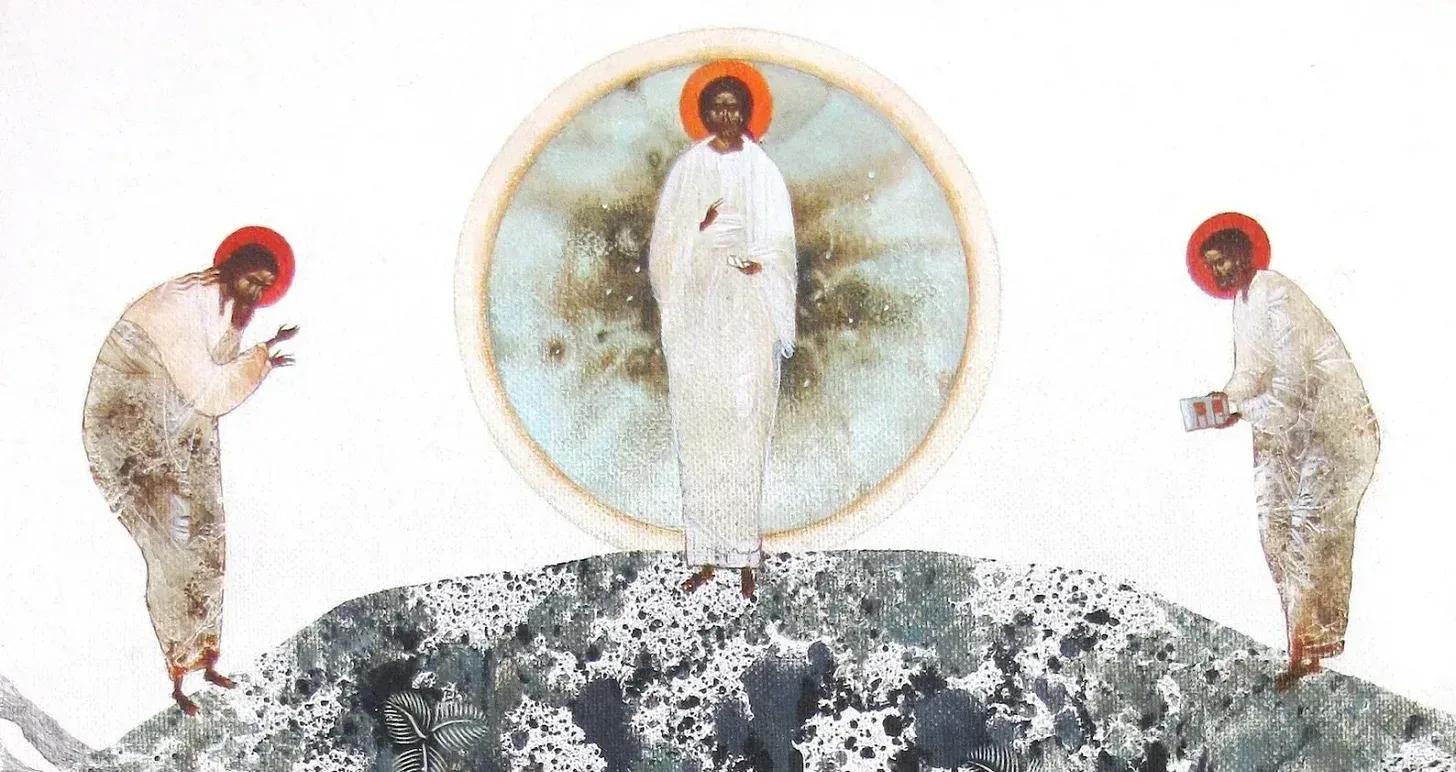Sermon for Epiphany 5B, February 4, 2024
February 4
is the birthday of Rosa Parks.
As February is also Black History Month,
I am sure that we will all be reminded of Mrs. Parks
and the Montgomery Bus Boycott
in the coming weeks.
In fact,
we will all have an opportunity
to make a Civil Rights Pilgrimage
with the Southeastern Synod
later this spring.
Mrs. Parks’ work for racial justice,
not only in the 1950s
but throughout her life,
made her an icon
of nonviolent direct action
as a tool for social change.
Rosa Parks took a stand by sitting down.
Bolstered by the leadership of the NAACP
and the preaching of the Rev. Dr. Martin Luther King, Jr.,
Rosa knew that “power concedes nothing without a demand,”
and that her faith taught her to
“not resist evil,
but overcome evil by doing good.”
So,
Rosa Parks sat down
and waited on the Lord.
Later,
reflecting on the experience,
she said,
“People always say
that I didn’t give up my seat
because I was tired,
but that isn’t true.
No,
the only tired I was,
was tired of giving in.”
Mrs. Parks knew what she was doing.
She knew she would be arrested.
She knew it was possible that she would be mistreated,
maybe even injured.
But she also knew
that things had to change.
She also knew her worth
and the worth of every other Black person
in Montgomery,
in Alabama,
in America.
She also knew while she was tired of giving in,
God does not grow weary,
that God gives power to the faint,
and strength to the powerless.
She knew that those who do what is right
and wait on the Lord,
will mount up with wings like eagles,
they shall run and not grow weary,
they shall walk and not faint.
In our Gospel lesson,
Jesus heads home from the synagogue
with Simon and Andrew.
At their house,
Jesus finds Simon’s mother-in-law
sick and in bed.
Jesus takes her by the hand
and raises her up.
Word spreads,
and by sundown,
the house is overrun
by the family and friends
of others, sick and demon possessed.
And Jesus heals them too,
preventing the demons
from telling the crowd who he is.
Before first light,
Jesus sneaks off to pray alone,
and when the disciples finally find him,
Jesus takes them away from the crowd at Simon’s house
to take the message and ministry
to other towns and villages.
All of these healings and exorcisms
Jesus preforms throughout the gospels
seem to fall into the same categories.
Jesus heals the lame,
the hemorrhaging woman,
and many suffering
from fits of self-harm
which the gospels attribute
to demon-possession.
Each of these phenomena,
or what psychologist Frantz Fanon called
“reactionary psychoses,”
are observed in many cultures around the world
who have been oppressed,
repressed,
and occupied by external
political and military powers.
These reactionary psychoses
are the result
of colonization,
the result of empire.
Jesus heals these folks,
“lifts them up,”
as he did with Simon’s mother-in-law,
freeing their bodies
from the effects of the powers that be.
Mark says
that after Jesus lifted up Simon’s mother-in-law,
that she began to serve them.
Now,
I always assumed that meant
that she got up
and made dinner,
or made these guests
comfortable.
After all,
she was a woman in a patriarchal society,
in a book written by men,
canonized by men,
interpreted by men,
translated by men,
and being read now by this man.
But,
the original language
doesn’t exactly imply this kind of service.
The original language
uses the same word for this woman’s service
as it uses for the first deacons in Acts.
Simon’s mother-in-law
doesn’t hop up to make her family dinner.
Simon’s mother-in-law
hops up a deacon,
steward over the house
where the whole town shows up
to meet Jesus
and be freed from what binds them.
I think this is why Jesus can leave town the next day.
He hasn’t abandoned the crowd
lingering at Simon’s home.
He left them in the care of this woman
he’s lifted up to serve the Kingdom,
this woman he healed and ordained
in the same moment.
And maybe,
if we interpreted this healing so wrong,
maybe we got the illness wrong, too.
Maybe she wasn’t so much sick
as sick of it.
Maybe that wasn’t a fever
as much as her blood boiling
over the injustice
she and her people endured.
Maybe her service to Jesus
and the disciples
wasn’t to fulfill a gender role,
but to flip the whole idea on its head.
We don’t even have a name
for Simon’s mother-in-law.
But maybe we could just call her “Rosa.”
But her name could just as easily be
teacher,
doctor,
lawyer;
deacon,
pastor,
bishop;
sister,
aunt,
mama.
Countless generations of women
have stood up
and sat in;
have spoken out,
acted out,
walked out;
have marched,
and sang,
and bled and died,
in service to their community,
in service to the Kingdom,
in service to Jesus
because they knew that
God gives power to the faint,
and strength to the powerless;
They knew
like Rosa
and like Simon’s mother-in-law,
that those who wait upon the Lord
shall renew their strength,
they shall mount up with wings like eagles,
they shall run and not be weary,
they shall walk and not faint.
Jesus came freeing the oppressed,
casting out the demons
that bound the bodies of God’s people,
lifting up servant leaders to care for their communities,
and preaching the good news of the Kingdom.
By our baptism,
Jesus is lifting up each of us
to serve the Kingdom
in ways great and small.
Some will be named in our history books,
and some will never be named.
No matter what we are lifted up to do,
it is the work of God in us
bringing hope and healing,
freedom and peace
to a world in need of our service.
To a world in need of justice.
To a world in need of good news.
To a world searching for Jesus.
Amen.










